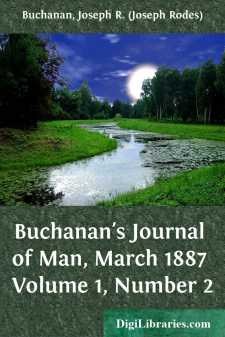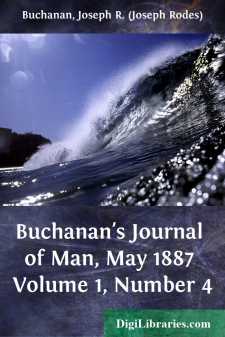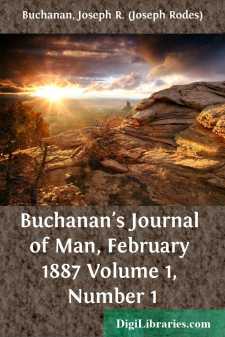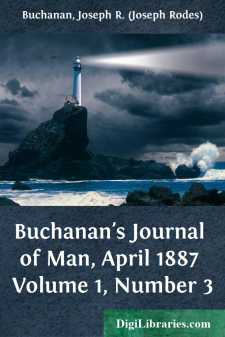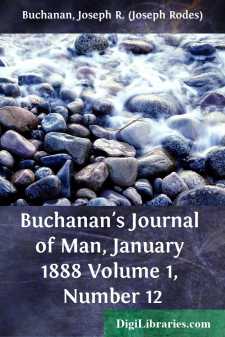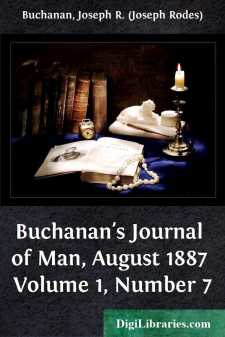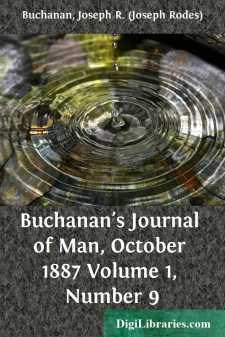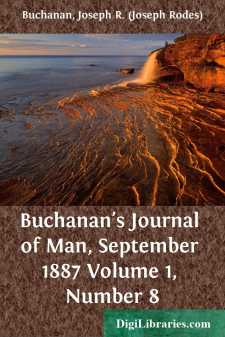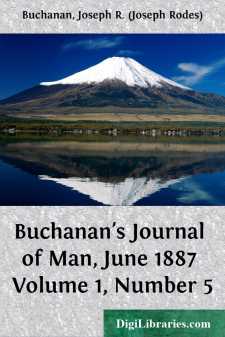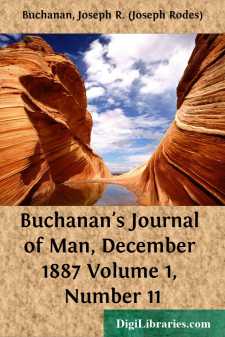Categories
- Antiques & Collectibles 13
- Architecture 36
- Art 48
- Bibles 22
- Biography & Autobiography 813
- Body, Mind & Spirit 138
- Business & Economics 28
- Children's Books 12
- Children's Fiction 9
- Computers 4
- Cooking 94
- Crafts & Hobbies 4
- Drama 346
- Education 46
- Family & Relationships 57
- Fiction 11821
- Games 19
- Gardening 17
- Health & Fitness 34
- History 1377
- House & Home 1
- Humor 147
- Juvenile Fiction 1873
- Juvenile Nonfiction 202
- Language Arts & Disciplines 88
- Law 16
- Literary Collections 686
- Literary Criticism 179
- Mathematics 13
- Medical 41
- Music 40
- Nature 179
- Non-Classifiable 1768
- Performing Arts 7
- Periodicals 1453
- Philosophy 64
- Photography 2
- Poetry 896
- Political Science 203
- Psychology 42
- Reference 154
- Religion 505
- Science 126
- Self-Help 81
- Social Science 81
- Sports & Recreation 34
- Study Aids 3
- Technology & Engineering 59
- Transportation 23
- Travel 463
- True Crime 29
Buchanan's Journal of Man, March 1887 Volume 1, Number 2
Categories:
Description:
Excerpt
The Archetypal Literature for the Future.
If the science of man, the being in whom the spiritual and material worlds are fully represented, and in whom both can be studied in their relations, has been fully (though not completely or finally) developed by the revelation through experiments, of the functions of the brain, then from the establishment of anthropology there necessarily begins a literary revolution, which not only changes all philosophy, but extends through all the realms of literature. There is no realm which can escape the modifying influence of ideas which are at the basis of all conceptions of man, of society, of duty, of religion, of art, of social institutions, of the healing art, education, and government, and the new light which psychometric illumination throws upon all sciences.
The literature of the future will therefore differ widely from the literature of the past, and millions of volumes which still hold their places on the shelves of libraries will in the next century take their proper place in the mouldering mass which interests the antiquarian alone,—the mouldering mass which universities still cherish, and which helps to deaden the rising intelligence of the western world. Let us, as Tennyson says,
“Hope the best, but hold the Present
Fatal daughter of the Past.”
It is self-evident that the farther back we go for intelligence the deeper we plunge in the darkness of ignorance; and even though intuitional and moral truths may be found in the old writings, they belong to a literature imbedded in an ignorance which necessarily darkens all that comes down from such periods.
The benumbing influence of antiquity—or rather of that extended period which may be called the Aristotelian age, the age in which all philosophic thought was utterly benumbed by the Greek literature—has not yet passed away. American writers are just beginning to get rid of their absolute subserviency to foreign models in all things, and in this partial independence they are still subservient to the fundamental philosophic and ethical ideas of the past. The change that is taking place is only in minor matters.
Even so graceful and able a writer as Longfellow illustrates fully the truth of these suggestions. Mr. Charles F. Johnson, in a well-written essay on Longfellow, Emerson, and Hawthorne, says:
“Most people feel that national temper is of slow evolution; that many heterogeneous elements must be fused and blended here; that we too must have a past, and that the spirit of our past must be taken up and transmitted before a new type is realized in a new art and a new literature. We can see that Longfellow was essentially a scholar—a receiver of impressions from books; that he was like an Æolian harp, blown upon by many winds, so that his music was in many regards necessarily a melodious echo of what was ‘whispered by world-wandering winds.’ And we can see, too, that he came into American literary life just as it was passing from the germ to the plant, and that every year he became more distinctive.”
There is nothing profound in this view, but it expresses well the average thought of the period,—that Americanism in literature must be the very gradual growth of new circumstances, experience, and associations, which may superficially modify the unbroken mass of thought which has been transplanted from Europe, just as vines and flowers take on their modifications in a new soil and climate....


